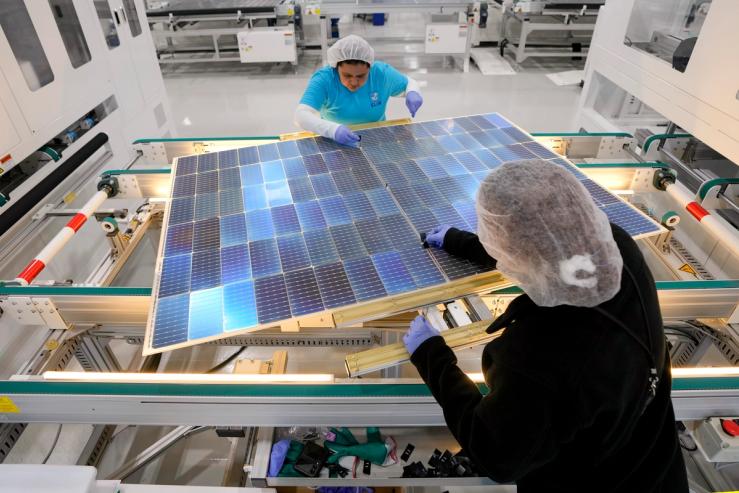Trade restrictions are likely to be the new normal in US politics even after President Donald Trump leaves office, senior energy executives said during Climate Week in New York.
The country’s energy transition has been thrown off kilter by Trump’s withdrawal of tax incentives in the Inflation Reduction Act alongside levies on imports that have together raised the cost of renewables deployment. Still, “coming from Michigan, tariffs are not all bad,” Jennifer Granholm, energy secretary under President Joe Biden, acknowledged to reporters. Where a future Democratic administration would differ with the Trump White House, she predicted, would be in pairing those tariffs with tax incentives.
And companies such as EDP, the Iberian utility and renewables firm, have in recent years begun domesticating their supply chains when working in the US market. The firm began making the shift during the Biden administration in order to “mitigate risk” against supply chain disruptions, the company’s Chief Financial Officer Rui Teixeira said, acknowledging the US had made a “strategic decision” largely across party lines to push for a reshoring of manufacturing even if it resulted in higher-cost goods. “It goes beyond the tariff discussion,” he said in an interview.


